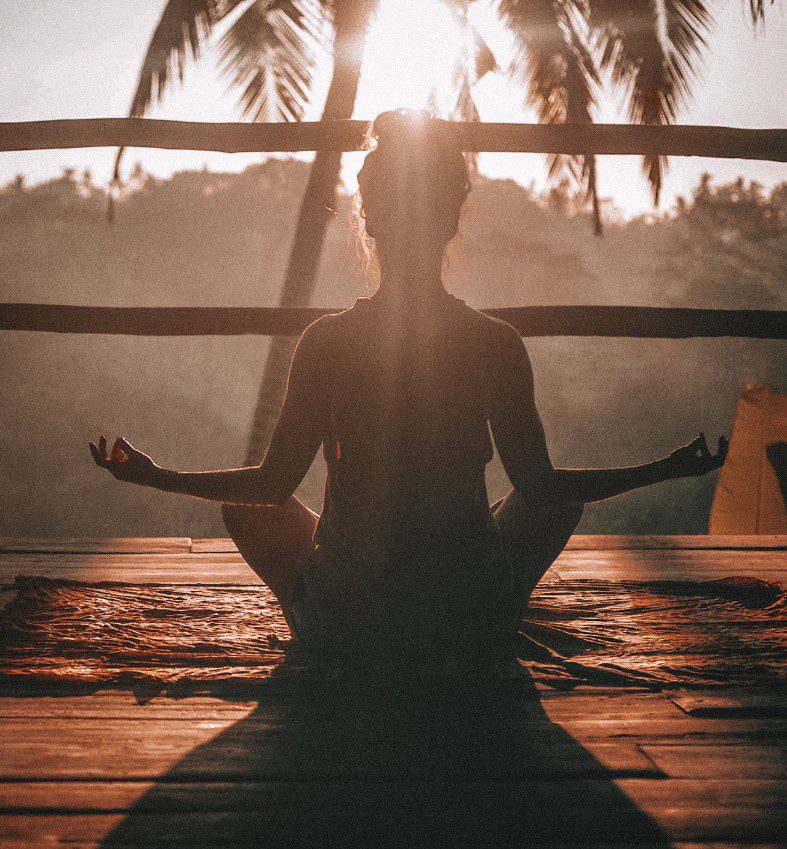Self-care has evolved beyond the era of spa days and retail therapy. People now embrace holistic wellness – prioritizing mental, physical, and emotional health. At the forefront of this movement are health influencers whose impact on social media has redefined traditional self-care practices and perceptions.
Let us uncover how health influencers help revolutionize self-care routines: from the positive and negative impacts of their influence to future trends in health influencing.
The evolution of self-care
Traditionally, self-care was viewed narrowly, focusing primarily on physical health and occasional indulgences. These routines only included taking vitamins, exercising, or going on shopping sprees (i.e. retail therapy).
The rise of digital media, mainly social media platforms, has broadened the scope of self-care. People can now access various health-related digital materials with just a single click. Gone are the days when people would make a quick trip to the clinic for health advice. Nowadays, they just go to TikTok for wellness tips!
In relation to that, health influencers have played a pivotal role in the self-care evolution. They have made self-care more accessible and relatable, forging the path to a more holistic approach to wellness.
Health influencers: Promoting self-care
Health influencers primarily have one goal in what they do: to create an impact strong enough to trigger healthy change in people. How do they accomplish that? A perfect mixture of relatability, rightful use of influence, and broadening audience reach through brand collaboration. All the strategies they do lead to the end goal of reshaping self-care towards a more accessible and engaging experience.
- Sharing personal health journeys
Being relatable entails highlighting a personal journey to build a connection with the audience. This approach makes adopting healthier habits easier and makes people feel less alone in their struggles. The common strategy for this is through vlogs, where influencers document their whole health journeys and talk about the steps they take to do it effectively.
- Providing health and wellness tips
Health influencers offer a wealth of tips to help their followers improve their physical health. This information is often presented in an easy-to-digest format, ranging from workout routines to dietary advice.
- Engaging with followers on self-care challenges
Remember Chloe Ting and her hardcore workout programs that became a trend during the pandemic? Almost everyone did these intense and grueling sets to stay healthy and active inside their home. Health influencers create these challenges to keep the audience engaged and encourage them to adopt new self-care routines.
- Collaborating with health and wellness brands
Collaboration with brands to promote health-related products is often included in the job description of a health influencer. These digital campaigns introduce useful products and services. However, it also raises questions about the commercialization of self-care.
Positive impacts of health influencers on self-care
Health influencers have become major catalysts in redefining self-care. Their impact is undeniable, building a strong level of awareness on different aspects of health.
- Increasing awareness about mental health
The stigma surrounding mental health has been a stubborn problem to tackle, and health influencers have been instrumental in breaking it. Thanks to their open discussion about their own struggles, people take comfort in knowing that they are not alone in their fight.
- Promoting physical fitness and healthy eating
Influencers have a strong power to motivate their followers. With that said, the motivation to adopt healthier lifestyles often hinges on the influencers’ workout videos and nutritional advice.
- Encouraging holistic approaches to health
Health influencers advocate for a holistic approach to wellness. They include different aspects of health rather than focusing only on physical wellness. They promote simple but effective activities like journaling, meditation, and self-reflection.
Criticisms and challenges
While it is true that health influencers left a notable mark on how we do self-care, there is still skepticism about their role in this growth. The reservation revolves around the negative impacts of their influence, such as misinformation, unrealistic health standards, and commercialization of self-care.
- Misinformation and lack of credentials
Not all health influencers have the credentials to provide health advice. Hence, the spread of misinformation. Meticulous evaluation of online information is critical to combat this.
Check their credentials! Better yet, follow real-life healthcare providers who use PR trends, such as social media, mainly to add value, educate, and deliver better care information to more people.
On that note, if you’re a health influencer that wants to build a more credible brand, consider partnering with a public relations and digital marketing agency to help get you started on the right track.
- Unrealistic health and beauty standards
Social media can be the ground zero for unrealistic health and beauty standards, which perpetuate a toxic culture of competition and dissatisfaction. These standards lead to unhealthy comparisons that can cause a severe decline in one’s mental health.
- Commercialization of self-care
Collaboration between influencers and brands can sometimes blur the line between genuine advice and advertisement. This incites skepticism about the authenticity of influencers’ recommendations.
The role of social media platforms
The rise of social media has transformed self-care by providing platforms where people can talk about health-related matters. With its pivotal role, it is expected to stay as a safe space for people who want to discuss their concerns and struggles online. Here are some of the ways social media platforms support health influencers and their community:
- Policies and regulations for health-related content
Social media platforms are liable for regulating health-related content to prevent the spread of misinformation. Common actions for this are implementing stricter policies and verification processes for health influencers.
- Curating healthy self-care environments
Platforms are responsible for filtering content to foster a healthy environment for users. This way, the right people can support the individuals seeking help and company.
- Features and tools that support genuine health influencers — and the audiences who need them
Social media features and tools, such as algorithms, help genuine health influencers reach a broader audience that favors evidence-based health information.
Future trends in health influencing and self-care
Self-care has come so far, but it does not end here. Health influencing has a positive future, and it only moves forward from this point. The emergence of innovative shifts in this landscape points towards a future where health influencing and self-care are more personalized, tech-driven, and grounded in credible evidence.
- The rise of micro-influencers in health and wellness
Micro-influencers, with their smaller but highly engaged audiences, are becoming increasingly influential in the health and wellness space. They offer more personalized content based on the demands of their audiences.
- The integration of technology and health tracking in self-care
As we traverse the digitalization era, it is no surprise that wearable technology and health-tracking apps are now integrated into self-care routines. This allows individuals to access data-driven insights into their health.
- The shift towards evidence-based health advice
Amidst all the information online, people will still inarguably seek health advice backed by scientific evidence to ensure safety and legitimacy. This trend gives credible and qualified health influencers the platform to discuss their expertise.
The new paradigm of self-care
Health influencers have made their mark in the self-care landscape by making it more accessible, relatable, and holistic. However, their influence comes with challenges, including the spread of misinformation and the commercialization of self-care.
In essence, both influencers and followers are responsible for promoting and engaging in healthy self-care practices. The future of self-care is promising – with trends indicating a steady move towards more personalized, evidence-based, and holistic approaches.
If you’re a healthcare brand or a healthcare influencer and would like to contribute to redefining self-care in the digital age, work with NGP IMC. We’ve done it for countless brands. Let’s do make it happen for yours!

Irishbeth Relampagos is a writer who specializes in crafting copies across various content formats, mainly SEO blogs and marketing materials. Her passion for translating ideas into impactful content has helped brands connect with their audiences in ways that transcend superficial and transactional interactions.
Irishbeth pursued English Language Studies at Polytechnic University of the Philippines where she honed her skills in writing. While originally focused on writing poems and opinion pieces, she shifted her career path to content writing after a successful stint as an SEO content writer during her internship.


